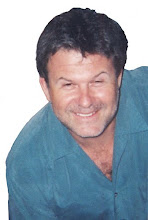I have a keen eye for evaluating athletic ability, and I proved it once again this past soccer season.
I came home from my son’s first practice one evening last August and pronounced the season doomed. That’s pretty early to go into the tank, but these 11-year-olds couldn’t waddle 50 yards without gasping like beached trout.
Maybe a real coach could eventually salvage something. But these kids didn’t have a real coach. They had me.
The volunteer shortage that keeps getting worse in local youth soccer had initially rendered my kid, and perhaps 150 others, coachless. Seven days before Opening Saturday, young, sinewy coaches were already running their charges between orange cones like grass-stained dervishes.
But no one had offered to run my kid’s team. I’d coached before, and the results hadn’t been too awful (except for a couple of times), so, reluctantly, I stepped up.
Soccer is not intuitive to me. My only experience with the game was one brutal week in eighth-grade P.E. The tough kids kicked each other in the shins for 45 minutes while the meek ones hid on the periphery, praying for it to end. Rules? Strategy? In soccer?
The team picked a name, choosing Quicksilver over Gray Goblins and Silver Boogers in a close vote. One player’s father agreed to help out with practice drills, and another eventually joined him. A couple of mothers volunteered to handle certain administrative duties, such as the halftime snack schedule — perhaps the single most important duty in youth soccer. We would be fine.
We won our first game 8-1. No one waddled and no one gasped. Perhaps I had misjudged these players. “I’ve molded them into Manchester United,” I boasted afterward. “With one practice.” It helped that soft-spoken Bernardo and a half-dozen others had Howitzers where their right legs should have been. I hadn’t noticed that earlier.
Quicksilver rolled, week after week. We lost just one of our first 11, avenged that lone defeat in the championship round and earned a spot in the American Youth Soccer Organization’s Section 10 Invitational. We would be facing teams from all over western Kern County — an area covering about 6,000 square miles.
We got through the first day without a loss and qualified for the Final Four. The next day we’d open with McFarland. I had seen McFarland teams play before, and I was afraid. Very afraid.
As my players stretched on the trampled grass the next morning, I resorted to the only coaching skill, other than shouting and pointing, at my disposal: the cliche-riddled motivational speech.
We were like the 1980 U.S. Olympic hockey team, I told the kids — rag-tag underdogs not given a shred of a chance against the invincible Russians. We were longshots, outsiders. “And those guys over there,” I said, too hoarse to properly impersonate Al Michaels, “are the Russians.” If my kids thought I was behaving like an idiot, they had the decency not to let on.
The McFarland players, conveniently clad in red, were every bit as American as you and I, of course — just shorter and much, much faster than the average citizen. But this was not the time to get bogged down with facts. This was a time for bald-faced, unrestrained hyperbole.
We battled to a 0-0 tie, escaping three or four potential goals that clanged off the post. An excruciating pair of five-minute overtime periods followed. Then came the tie-breaking shootout — a series of alternating, point-blank, kicker vs. goaltender shots. Bernardo put us ahead, and when our man-child goalie, Alan, stopped McFarland’s final shot, there was bedlam.
An hour and a half later, as the referees were about to assemble us for the championship game against equally ferocious Taft, I realized I hadn’t finished the story of the U.S. hockey team. The match against Russia hadn’t been the clincher, I told the boys. The Americans would have to reach deep once again and summon the will to win the final game. “Those guys over there,” I bellowed shamelessly, motioning toward our opponents, “are Finland.”
We won again in almost-identical fashion, right down to the heart-stopping shootout. We were the champs.
Over the course of the season, I’d inadvertently recruited a couple of future volunteer coaches. Maybe next year, I figured, I could safely retire to a folding chair. Then again, with more than 6,000 rec-league kids in west Kern, maybe not.
In February, Quicksilver will play in the Southern California championships. How I’ll top the hockey speeches I have no idea — Sir Edmund Hillary and Mt. Everest? — but I’m certain we’ll win it all. I know this because (and I hate to brag) I am an astute judge of athletic ability. Did I already mention that?
Originally published Dec. 9, 2007
Subscribe to:
Post Comments (Atom)

No comments:
Post a Comment